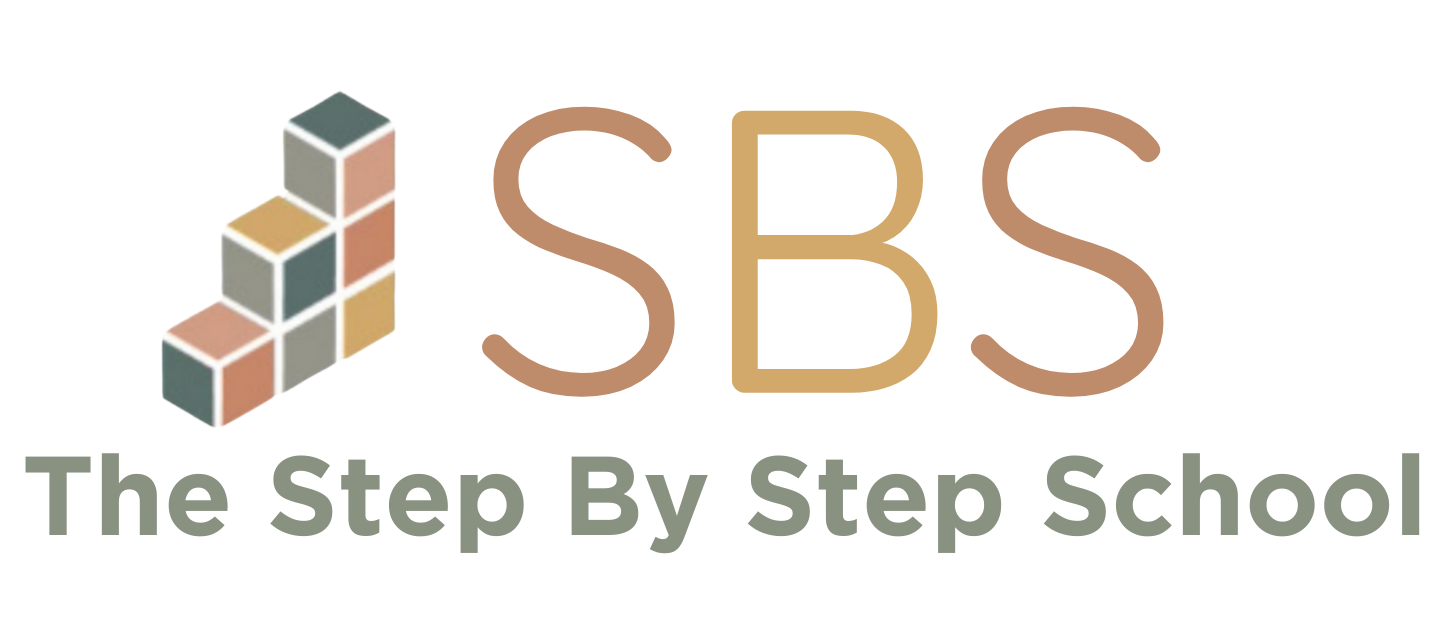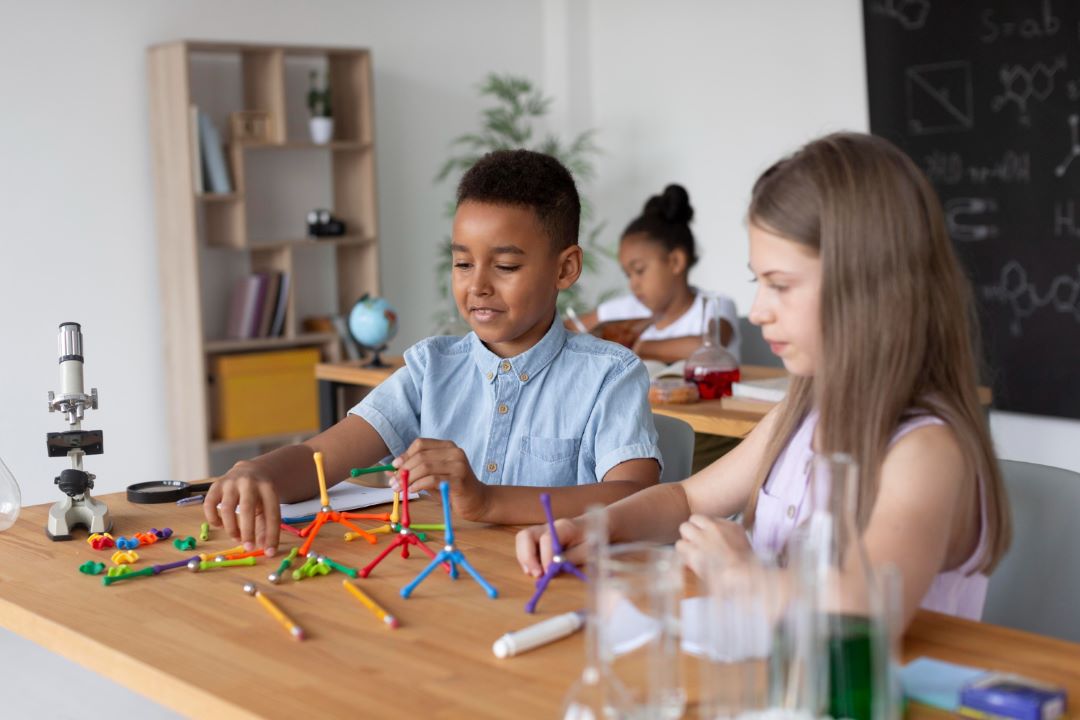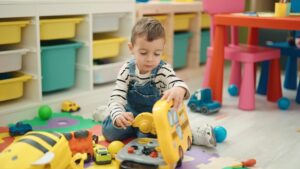Play is the language of childhood—and one of the most effective ways for children to learn. At The Step by Step School in Hoboken, our approach to play-based education focuses on building creativity, confidence, and social-emotional growth. Through imaginative, hands-on experiences, children develop critical thinking skills that last well beyond the preschool years.
What Is Play-Based Education?
Play-based education is a teaching method that uses play as the primary vehicle for learning. Instead of focusing solely on structured lessons, it encourages children to explore, imagine, and problem-solve through activities that feel natural and enjoyable.
In a play-based classroom, you’ll see children building towers with blocks, engaging in pretend play, creating art, and collaborating on puzzles—all while developing essential academic and life skills. This approach ensures that learning feels like discovery, not a chore.
At The Step by Step School, we believe that play-based education helps children find joy in learning while developing the confidence to express their ideas.
The Science Behind Play-Based Education
Research from the American Academy of Pediatrics supports play-based education as a critical factor in early childhood development. Through play, children strengthen their neural connections, improve focus, and develop executive function—the ability to plan, remember instructions, and manage multiple tasks.
When children engage in pretend play or group activities, they practice problem-solving, empathy, and self-regulation. These cognitive and emotional benefits make play-based education one of the most powerful tools in early learning.
How Play-Based Education Builds Creativity
Creativity flourishes when children are free to explore ideas without rigid boundaries. Play-based education nurtures this natural creativity by giving children choices and encouraging experimentation.
For instance, when a child builds a tower that keeps falling, they learn to think critically about balance, structure, and design. When they paint freely or invent new games, they’re expressing individuality and learning resilience.
At The Step by Step School in Hoboken, our classrooms are designed to spark imagination—filled with colorful materials, interactive learning stations, and space for movement. This environment fuels curiosity and helps children develop original ideas confidently.
Play-Based Education and Confidence Building
Confidence doesn’t come from perfection—it comes from experience. Through play-based education, children learn that making mistakes is part of the learning process. Each small success, whether completing a puzzle or learning to share, strengthens their sense of accomplishment.
Teachers play an important role in guiding this process. They observe rather than direct, allowing children to take the lead in their learning. This fosters independence, critical thinking, and self-assurance.
By engaging in play-based education, children in Hoboken classrooms gain the courage to try new things, speak up, and express themselves without fear.
The Role of Teachers in Play-Based Education
In play-based education, teachers act as facilitators rather than instructors. Their goal is to create opportunities for exploration while providing gentle guidance and support.
At The Step by Step School, teachers carefully plan activities that promote both learning and creativity. For example:
-
Storytime sessions that inspire imagination
-
Group building projects that teach cooperation
-
Sensory play that enhances motor skills and curiosity
This balance ensures that children develop academically and emotionally, preparing them for the next stages of education.
Play-Based Education in Hoboken: A Local Perspective
Hoboken families appreciate that learning doesn’t always happen at a desk. With local parks, museums, and cultural centers, the community itself becomes an extension of the classroom.
Play-based education encourages families to take part in learning through outdoor play, creative arts, and exploration. Whether it’s a walk along the waterfront or a trip to the Hoboken Public Library, these activities reinforce lessons learned at school.
Parents can explore programs like ours by visiting The Step by Step School contact page or checking our Google Maps location to learn more.
How Play-Based Education Encourages Social Skills
Beyond creativity and confidence, play-based education supports essential social development. When children play together, they learn teamwork, negotiation, and empathy.
For example, deciding who plays which role in a make-believe game teaches communication and compromise. Group activities such as building projects or storytelling circles also encourage children to listen and collaborate effectively.
These experiences form the foundation for emotional intelligence—a vital skill for future success.
Academic Readiness Through Play
Although play-based education may seem less formal, it prepares children academically as well. Activities that involve counting, sorting, storytelling, and pattern recognition naturally build literacy and numeracy skills.
By engaging in play, children learn through context—understanding how math, science, and language apply in real-world scenarios. This approach helps them transition smoothly into structured school environments with enthusiasm and readiness.
At The Step by Step School, play-based education blends fun with foundational academics, ensuring that children are confident and capable learners.
Why Parents Love Play-Based Education
Parents in Hoboken choose play-based education because it nurtures the whole child. Rather than focusing only on academics, it develops creativity, resilience, and self-expression.
Children who learn through play often show:
-
Higher motivation and curiosity
-
Better communication skills
-
Greater emotional balance
-
Stronger adaptability in new situations
This holistic growth sets them up not just for school success—but for life.
Building a Lifelong Love of Learning
Play-based education does more than prepare children for kindergarten—it builds an enduring love for learning. When children associate education with joy and discovery, they remain curious long into adulthood.
At The Step by Step School, every child is encouraged to explore, question, and imagine. By valuing play as a powerful learning tool, we help children grow into confident, creative thinkers ready to face the world.
To learn more about our play-based programs or to schedule a visit, contact us through our official website.
Conclusion: The Power of Play in Early Learning
Play-based education transforms classrooms into spaces of wonder, growth, and confidence. It teaches children how to think independently, collaborate with others, and express themselves freely.
In Hoboken, The Step by Step School is proud to offer an environment where every child can thrive through play—developing the creativity and self-assurance they’ll carry for life.
FAQs About Play-Based Education
1. What is play-based education?
Play-based education is a learning approach that uses play to promote cognitive, social, and emotional development in children.
2. How does play-based education help children build confidence?
It allows children to make choices, take risks, and learn from mistakes—fostering independence and self-esteem.
3. What skills does play-based education develop?
It enhances creativity, problem-solving, communication, and teamwork while supporting academic readiness.
4. How is play-based education different from traditional learning?
Unlike structured instruction, play-based education encourages hands-on exploration, imagination, and self-directed discovery.
5. Why choose The Step by Step School for play-based education?
Our Hoboken program provides a safe, engaging environment where play drives learning, helping children build both creativity and confidence.









